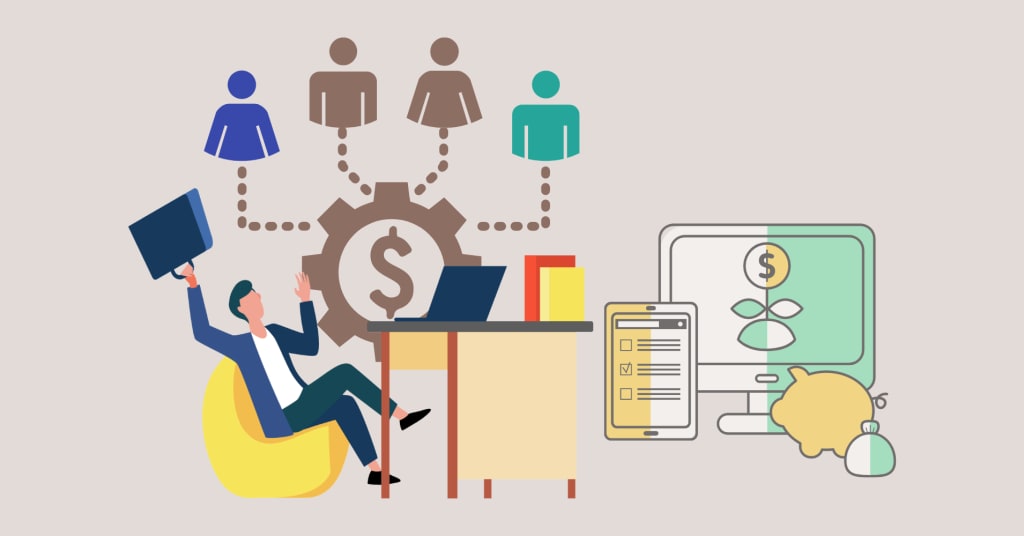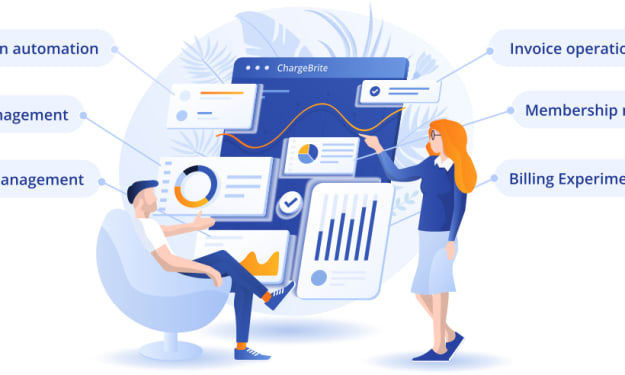Exploring the Financial Advantages of Recurring Billing for Startups
For startups and small businesses, managing cash flow and ensuring consistent revenue streams are critical to their success.

For startups and small businesses, managing cash flow and ensuring consistent revenue streams are critical to their success. One effective strategy that can help achieve this is implementing a recurring billing model. Recurring billing refers to a payment structure where customers are billed automatically at regular intervals for the products or services they have subscribed to. In this article, we will explore the financial advantages of recurring billing for startups and why it has become an increasingly popular option in today's business landscape.
Predictable Revenue Streams:
One of the primary benefits of recurring billing for startups is the creation of predictable revenue streams. With a subscription-based model, businesses can forecast their monthly or annual revenue more accurately. This predictability allows startups to make better-informed decisions regarding their financial planning, budgeting, and resource allocation. By having a clear understanding of their incoming cash flow, startups can effectively manage expenses, invest in growth initiatives, and minimize the risk of financial instability.
Improved Cash Flow Management:
Cash flow management is often a major challenge for startups, especially during the early stages of operation. Recurring billing can significantly improve cash flow management by providing a consistent and regular influx of revenue. Instead of relying on one-time transactions or sporadic sales, startups can rely on a steady stream of recurring payments from their customers. This stability allows businesses to better manage their operational costs, meet their financial obligations, and avoid cash flow gaps that can hinder growth and stability.
Enhanced Customer Retention:
Another key advantage of recurring billing is the potential for improved customer retention. By offering subscription-based services, startups can create long-term relationships with their customers. When customers subscribe to a product or service, they are more likely to continue using it over an extended period, especially if it offers value and meets their needs. This recurring revenue not only contributes to financial stability but also builds a loyal customer base. Additionally, startups can leverage customer data from recurring billing to personalize their offerings, provide better customer support, and increase overall customer satisfaction.
Cost Savings:
Implementing recurring billing systems can also lead to significant cost savings for startups. Traditional billing methods often involve manual invoicing, processing payments, and chasing late payments, which can be time-consuming and resource intensive. By automating the billing process, startups can reduce administrative costs and free up valuable time and resources. Recurring billing systems can handle tasks such as generating invoices, sending payment reminders, and processing payments automatically, thereby streamlining operations and reducing the need for manual intervention.
Scalability and Growth Potential:
Recurring billing models are highly scalable, making them ideal for startups with aspirations for rapid growth. As the customer base expands, the revenue stream also grows organically. With each new subscriber, the recurring revenue increases, allowing startups to reinvest in their business, expand their offerings, or explore new market opportunities. This scalability enables startups to align their revenue growth with their expansion plans, without the need for significant additional resources or capital.
Reduced Churn:
Customer churn, or the rate at which customers discontinue their subscriptions, can be a significant concern for startups. However, recurring billing can help reduce churn rates. By offering subscription-based services, startups can provide customers with added convenience, cost savings, and ongoing value, increasing the likelihood of customer retention. Additionally, recurring billing systems often come with features like subscription management, customer analytics, and automated communication, which can help identify at-risk customers and implement targeted retention strategies.
Efficient Revenue Recognition:
In terms of accounting and financial reporting, recurring billing simplifies revenue recognition for startups. Instead of dealing with sporadic and unpredictable revenue from one-time sales, businesses can rely on recurring revenue streams that are easier to track and account for. This streamlines financial reporting processes and ensures compliance with accounting standards, making audits and financial analysis more straightforward. Efficient revenue recognition also provides startups with accurate financial data that can help them make informed business decisions and attract potential investors.
Cross-Selling and Upselling Opportunities:
Recurring billing models open opportunities for startups to implement cross-selling and upselling strategies. When customers subscribe to a service or product, businesses can leverage that relationship to offer additional complementary products or premium upgrades. This approach not only increases the average revenue per customer but also enhances customer satisfaction by providing them with a more comprehensive solution. By strategically implementing cross-selling and upselling techniques, startups can further boost their recurring revenue and foster long-term customer relationships.
In conclusion, implementing recurring billing offers several financial advantages for startups. From creating predictable revenue streams and improving cash flow management to enhancing customer retention and scalability, recurring billing can significantly contribute to the success and stability of startups. Additionally, the cost savings, reduced churn rates, efficient revenue recognition, and cross-selling opportunities further strengthen the case for adopting recurring billing models. By embracing this approach, startups can position themselves for growth, maximize their revenue potential, and build a loyal customer base in today's competitive business landscape.
Work 365 is a subscription billing solutions and offer provisioning automation using customer self service portal for Microsoft partners.





Comments
There are no comments for this story
Be the first to respond and start the conversation.